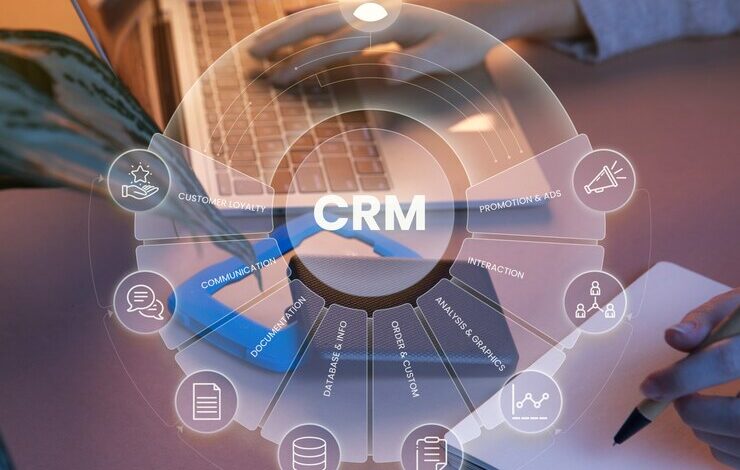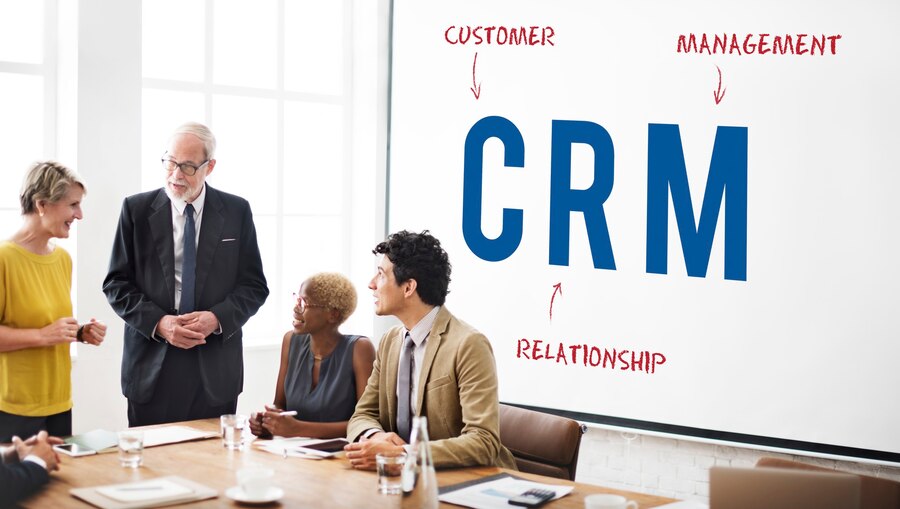Enhancing Customer Relationships in the Rubber Industry: The Role of crm balitteknologikaret.co.id

In today’s competitive business landscape, effective customer relationship management (CRM) is essential for organizations seeking to thrive. As markets become more saturated and consumer expectations rise, businesses must find innovative ways to manage their relationships with clients. This is particularly true in specialized industries like rubber production and technology, where understanding customer needs is crucial. crm balitteknologikaret.co.id stands out as a comprehensive solution tailored to the unique demands of the rubber industry, providing valuable tools for enhancing customer engagement and satisfaction.
Understanding Customer Relationship Management (CRM)
Customer Relationship Management (CRM) refers to a set of strategies, practices, and technologies used by businesses to manage and analyze customer interactions and data throughout the customer lifecycle. The ultimate goal of CRM is to improve customer service relationships, assist in customer retention, and drive sales growth.
- The Importance of CRMThe importance of CRM systems cannot be overstated, particularly in today’s data-driven world. Here are a few reasons why CRM is vital for businesses:
- Centralized Customer Data: A CRM system consolidates customer information in one location, making it easier for teams to access and manage data. This centralized approach ensures that everyone in the organization has up-to-date information, allowing for more personalized customer interactions.
- Improved Communication: CRM systems facilitate better communication among teams and with customers. Automated communication tools, such as email campaigns and follow-up reminders, help ensure that no customer inquiries are overlooked.
- Enhanced Customer Experience: By analyzing customer data, businesses can gain insights into customer preferences and behaviors. This knowledge enables them to tailor their services and communications, leading to improved customer satisfaction and loyalty.
- Sales and Marketing Alignment: A well-implemented CRM system bridges the gap between sales and marketing teams. By sharing customer insights, both teams can work together to develop targeted marketing campaigns and sales strategies that resonate with customers.
- The Evolution of CRM TechnologyOver the years, CRM technology has evolved significantly. Traditional CRM systems focused primarily on sales automation and customer data management. However, modern CRM solutions encompass a wide range of functionalities, including:
- Artificial Intelligence (AI): AI-powered CRMs analyze customer interactions to predict behaviors and recommend actions, enabling businesses to proactively address customer needs.
- Mobile Access: With the rise of mobile technology, CRM systems now offer mobile applications that allow sales and support teams to access customer information on the go, ensuring that they can provide timely support regardless of their location.
- Integration with Other Systems: Modern CRMs can integrate with other business tools, such as marketing automation software, e-commerce platforms, and project management systems. This integration streamlines workflows and enhances data accuracy across the organization.
Introducing Balit Teknologi Karet
Balit Teknologi Karet (Rubber Technology Institute) is a prominent research and development institution in Indonesia focused on advancing the rubber industry. With a commitment to innovation and sustainability, Balit Teknologi Karet plays a crucial role in promoting technological advancements and improving the quality of rubber products in the country.
- Mission and VisionThe mission of Balit Teknologi Karet is to enhance the competitiveness of the rubber industry through research, development, and dissemination of technology. The institute aims to be a leading authority in rubber technology, contributing to the growth of the industry and the welfare of stakeholders involved.The vision of Balit Teknologi Karet encompasses the development of sustainable practices that promote environmental stewardship and economic growth. By leveraging research and technology, the institute seeks to position Indonesia as a key player in the global rubber market.
- Role of CRM in Balit Teknologi KaretAt crm balitteknologikaret.co.id, the integration of CRM technology plays a pivotal role in achieving the institute’s objectives. By implementing a CRM system tailored to the needs of the rubber industry, Balit Teknologi Karet can enhance its customer relationships and streamline operations.
The Features and Benefits of CRM at Balit Teknologi Karet
The CRM system at Balit Teknologi Karet is designed to address the specific challenges faced by the rubber industry. Here are some of the key features and benefits of the CRM system:
- Centralized Data ManagementThe CRM system centralizes all customer data, making it accessible to various departments within Balit Teknologi Karet. This centralized approach ensures that sales, marketing, and research teams can collaborate effectively, sharing insights and aligning their strategies to meet customer needs.
- Enhanced Customer InteractionWith a comprehensive view of customer interactions, Balit Teknologi Karet can personalize communication and engagement strategies. The CRM system enables teams to track customer inquiries, preferences, and feedback, ensuring that they can respond promptly and accurately.
- Market Research and AnalysisThe rubber industry is dynamic, with changing trends and demands. The CRM system facilitates market research by gathering data on customer preferences, purchasing behaviors, and industry trends. This information is invaluable for developing targeted products and marketing strategies.
- Improved Customer ServiceWith a robust CRM system in place, Balit Teknologi Karet can provide timely and efficient customer support. Automated workflows allow teams to manage customer inquiries and follow-ups effectively, ensuring that customers receive the assistance they need when they need it.
- Sales Management ToolsThe CRM system includes tools for managing sales processes, from lead generation to deal closure. By tracking sales activities and customer interactions, Balit Teknologi Karet can identify opportunities for upselling and cross-selling, ultimately increasing revenue.
- Collaboration and CommunicationThe CRM platform fosters collaboration among teams by providing a shared space for communication and project management. With features like task assignments, shared notes, and discussion forums, teams can work together more effectively, enhancing productivity and responsiveness.
- Analytics and ReportingData-driven decision-making is essential for success in any industry. The CRM system at Balit Teknologi Karet includes powerful analytics and reporting tools that enable teams to track performance metrics, customer satisfaction, and sales trends. This information is crucial for making informed business decisions and adjusting strategies as needed.
Implementing CRM Successfully
While the benefits of CRM are clear, successful implementation requires careful planning and execution. Here are some key considerations for Balit Teknologi Karet as it integrates CRM into its operations:
- Identifying ObjectivesBefore implementing a CRM system, it’s essential to define clear objectives. Balit Teknologi Karet should identify the specific goals it aims to achieve through CRM, such as improving customer satisfaction, increasing sales, or enhancing collaboration among teams.
- Choosing the Right CRM SolutionSelecting the right CRM solution is critical for success. Balit Teknologi Karet should consider factors such as scalability, user-friendliness, and integration capabilities when choosing a CRM platform. It’s essential to choose a system that aligns with the institute’s unique needs and goals.
- Training and AdoptionSuccessful CRM implementation relies on user adoption. Balit Teknologi Karet should invest in training programs to ensure that employees understand how to use the CRM system effectively. Encouraging feedback and providing ongoing support can help foster a culture of adoption and maximize the system’s benefits.
- Continuous Evaluation and ImprovementCRM implementation is not a one-time effort. Balit Teknologi Karet should continuously evaluate the effectiveness of the CRM system, gathering feedback from users and analyzing performance metrics. This ongoing assessment allows for adjustments and improvements that enhance the system’s capabilities and alignment with business goals.
The Future of CRM in the Rubber Industry
As the rubber industry continues to evolve, so too will the role of CRM systems. Here are some trends and predictions for the future of CRM in the rubber industry:
- Increased Use of AI and AutomationThe integration of artificial intelligence and automation will likely become more prevalent in CRM systems. AI can analyze customer data to identify trends, predict behaviors, and recommend actions, enabling organizations to make proactive decisions.
- Greater Emphasis on Customer ExperienceAs competition intensifies, the focus on customer experience will become increasingly important. Organizations like Balit Teknologi Karet will need to leverage CRM systems to understand and enhance the customer journey, ensuring that every interaction adds value.
- Mobile CRM SolutionsWith the rise of mobile technology, CRM systems will increasingly offer mobile applications that allow teams to access customer data and manage interactions on the go. This mobility will enable sales and support teams to provide timely service, regardless of their location.
- Integration with IoT and Data AnalyticsThe Internet of Things (IoT) and data analytics will play a significant role in shaping the future of CRM. Organizations in the rubber industry can leverage data from connected devices to gain insights into customer preferences and product performance, enhancing decision-making and customer engagement.
- Sustainability and Social ResponsibilityAs consumers become more environmentally conscious, CRM systems will need to incorporate features that track sustainability efforts and promote social responsibility. Organizations like Balit Teknologi Karet can use CRM tools to communicate their commitment to sustainability and engage customers in meaningful ways.

Conclusion
The integration of a robust CRM system at crm balitteknologikaret.co.id marks a significant step forward for Balit Teknologi Karet and the rubber industry as a whole. By harnessing the power of customer relationship management, the institute can enhance its customer interactions, improve service quality, and drive business growth.
As the rubber industry continues to evolve, organizations must adapt to changing market dynamics and customer expectations. CRM systems provide the tools and insights necessary to navigate these changes successfully. By prioritizing customer relationships and leveraging technology, Balit Teknologi Karet can position itself as a leader in the rubber industry, driving innovation and growth for years to come.
With a focus on continuous improvement and a commitment to customer satisfaction, Balit Teknologi Karet is well-equipped to meet the challenges of the future. The implementation of a tailored CRM system will not only enhance customer relationships but also empower the institute to achieve its broader mission of advancing the rubber industry in Indonesia.





